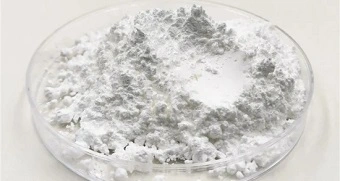Yttrium Chloride in Focus: A Catalyst for Next-Generation Technologies
16 Oct 2024 • by Natalie Aster

Yttrium chloride, a rare earth compound, is gaining prominence as a vital component in the development of next-generation technologies. This compound, often overshadowed by its more famous counterparts like neodymium or cerium, is gradually becoming indispensable across various high-tech applications and carving its niche as a catalyst for innovation and advancements.
Yttrium Chloride in Electronics
Yttrium chloride is essential in the electronics industry, where it is used to develop materials with superior magnetic and electrical properties. Yttrium oxide (derived from yttrium chloride) is commonly used as a dielectric in thin-film capacitors, which are integral to modern semiconductor devices. These components are essential in devices such as smartphones, computers, and advanced sensors.
Additionally, yttrium chloride is employed in the synthesis of superconducting materials that are crucial for quantum computing and other cutting-edge electronics.
Yttrium Chloride in Phosphors & Lighting
One of the most well-known uses of yttrium chloride is in the production of yttrium-based phosphors. These phosphors are critical in LED technologies and display screens for televisions, computers, and smartphones. Yttrium chloride contributes to the vibrant red color emitted by europium-doped yttrium oxide phosphors, used in cathode ray tubes (CRTs) and fluorescent lighting.
Moreover, yttrium chloride is a key ingredient in the production of long-lasting, energy-efficient LEDs, which are pivotal for reducing energy consumption in residential and industrial settings. Its use in LEDs has revolutionized lighting technology and also contributed to significant environmental benefits through energy savings.
Role in Material Science & Ceramics
Yttrium chloride serves as a precursor in the production of yttrium oxide, which is further used in creating yttrium-stabilized zirconia (YSZ). YSZ is a robust ceramic material known for its excellent thermal stability, corrosion resistance, and high ionic conductivity. These properties make it ideal for use in solid oxide fuel cells (sofcs), high-temperature sensors, and thermal barrier coatings for jet engines and gas turbines.
YSZ's ability to withstand extreme environments positions it as a critical material for aerospace and automotive industries, enabling advancements in fuel efficiency and engine durability.
Yttrium Chloride in Catalysis & Chemical Synthesis
Yttrium chloride is widely employed as a catalyst in various chemical reactions. In organic synthesis, yttrium chloride is used to facilitate carbon-carbon bond formations, hydrogenation reactions, and other important transformations. It is particularly effective in the Friedel-Crafts alkylation and acylation reactions, which are fundamental processes in producing pharmaceuticals, plastics, and other industrial chemicals.
In petrochemical refining, yttrium chloride-based catalysts are adopted to improve the efficiency of cracking processes, contributing to the production of high-value hydrocarbons and synthetic fuels.
Yttrium Chloride & Environmental Impact
While yttrium chloride plays a vital role in advancing technology, it is important to consider its environmental footprint. Rare earth element mining, including that of yttrium, has raised concerns over ecological damage and resource depletion. However, efforts are being made to minimize the impact by developing more sustainable extraction methods and promoting the recycling of rare earth materials.
In particular, the recycling of yttrium from used electronic devices and fluorescent lamps has gained traction, reducing the need for new mining operations and helping to conserve these valuable resources. This shift toward a circular economy ensures that yttrium chloride and other rare earth elements remain available for future technologies while mitigating their environmental impact.
Future Prospects
The future of yttrium chloride is bright, with ongoing research and development paving the way for even more groundbreaking applications. Some areas where yttrium chloride is expected to make notable contributions include:
- Quantum Computing: As yttrium-based superconductors improve, they are likely to pioneer the development of quantum processors.
- Advanced Energy Storage: Yttrium chloride may enhance the performance of next-generation batteries and fuel cells.
- Biomedical Applications: Yttrium chloride is being explored for use in cancer treatments, specifically in radioisotope therapies for targeting tumors with high precision.
These potential advancements underscore yttrium chloride’s importance as a cornerstone in the evolution of next-generation technologies. As research continues and new technologies emerge, the role of yttrium chloride will only become more pronounced in shaping the future of advanced materials and sustainable solutions.
Product Details:
YTTRIUM CHLORIDE (CAS 10361-92-9) Market Research Report 2024
Published: October 2024
Pages: 50
Market Publishers boasts a rich collection of insightful research studies covering the chemicals and petrochemicals market, find it in the Chemicals & Petrochemicals Market Reports Catalogue.
CONTACTS
The Market Publishers, Ltd.
Natalie Aster
Tel: +44 208 144 6009
Fax: +44 207 900 3970
[email protected]
MarketPublishers.com
Analytics & News
